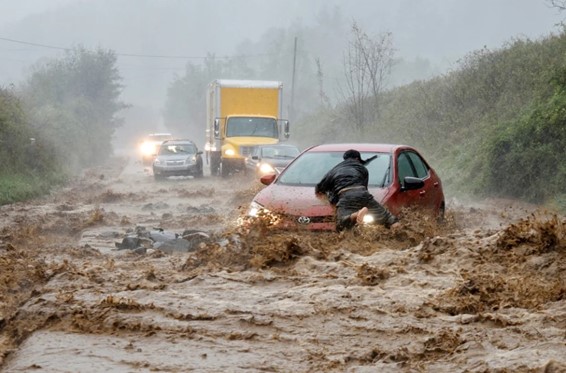
A report from ClimaMeter, a consortium that analyzes extreme weather events, found that Helene's rainfall totals and winds were strengthened by human-driven climate change, with the rainfall up to 20% heavier and winds up to 7% stronger.
The consortium noted that elevated temperatures in the Gulf of Mexico — something climate scientists have been warning about for years — likely contributed to Helene's power.
"Although focused studies are needed to confirm this, it is likely that the unusually high heat content in the Gulf of Mexico has contributed to both [Helene's] rapid intensification and the exceptional atmospheric river that caused extreme floods over the South-Eastern US," the consortium said in its report.
A separate report from the Lawrence Berkeley Lab in California suggested that the influence of warming due to climate change created 50% more rain over parts of Georgia and the Carolinas than otherwise would have been expected.
"Furthermore, we estimate that the observed rainfall was made up to 20 times more likely in these areas because of global warming," the report added.
Neither of the studies have been peer reviewed or published in journals, which is normal for rapid-attribution work.
Copious research has revealed a strong link between climate change and rapidly intensifying and wetter tropical systems because warmer atmosphere allows for heavier rain over land. For every 1 degree Fahrenheit of warming, the atmosphere can hold about 4% more moisture.
More than 150 people have died and hundreds remain missing as disaster response efforts are ongoing in parts of North Carolina. Historic amounts of rain hammered southern Appalachia, flooding entire towns.
The highest official rainfall total from Helene was more than 30 inches over Busick, North Carolina, and radar estimates suggested there could have been higher amounts of up to 40 inches over the more rural areas and highest elevations of the Appalachian Mountains.
Source: NBC News – URL: https://www.nbcnews.com/science/environment/helene-rainfall-boosted-human-driven-climate-change-studies-find-rcna173608